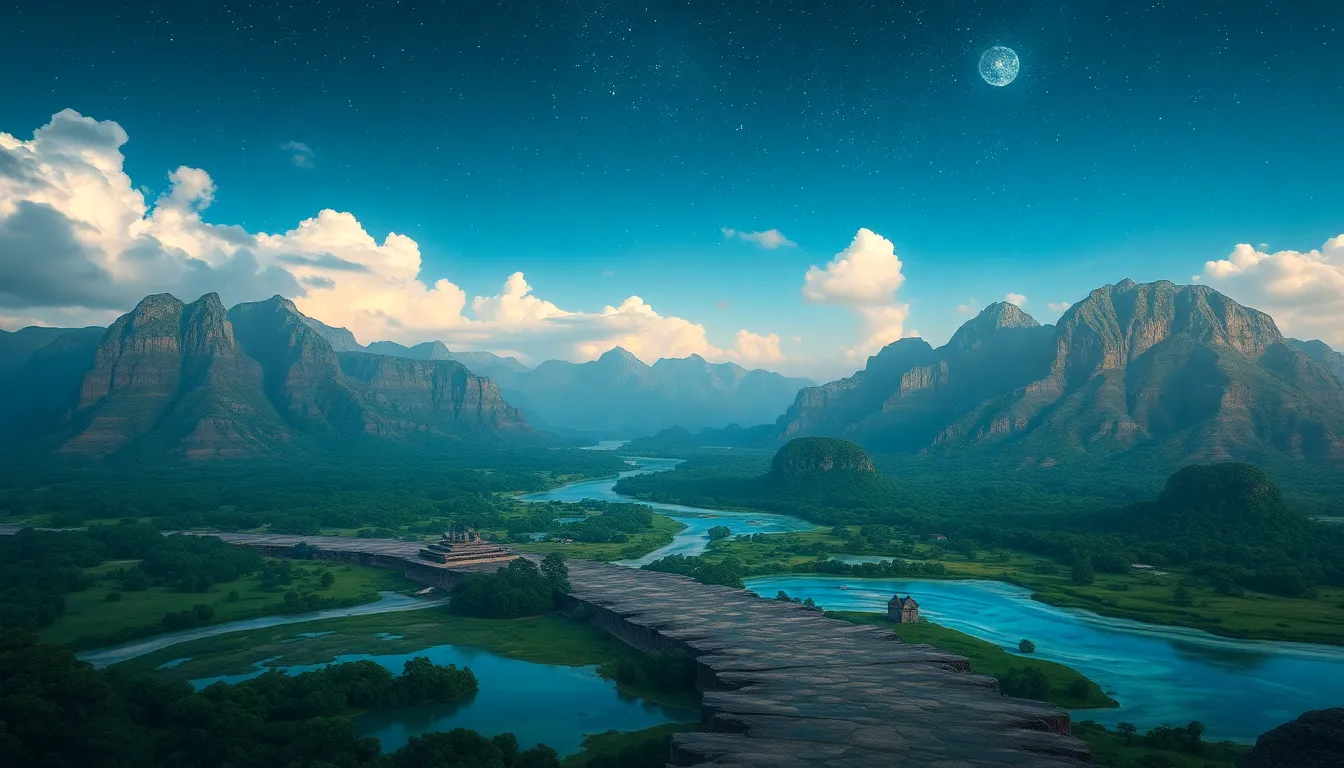The Enigmatic Kingdom of Lemuria: Myths of Lost Continents
Introduction to Lemuria: A Brief Overview
The term “Lemuria” refers to a hypothetical lost continent, often associated with the Indian Ocean, which has captured the imagination of scientists and mystics alike. The idea of Lemuria emerged in the 19th century and has since been a subject of intrigue in various fields, from geology to spiritualism. The allure of lost continents like Lemuria reflects humanity’s enduring fascination with the unknown and the mysteries of our planet.
The Historical Roots of Lemurian Myths
Early references to Lemuria can be traced back to scientific discourse, particularly in the writings of naturalists and geologists. The concept gained prominence through the work of Philip Sclater, a British zoologist, who proposed the existence of a land bridge to explain the distribution of certain species in Madagascar and the Indian subcontinent.
The Victorian era, characterized by a keen interest in exploration and the natural sciences, further fueled the Lemurian myth. As explorers mapped uncharted territories, the idea of lost civilizations became a tantalizing possibility, leading to a blend of scientific inquiry and imaginative speculation.
Geographical Theories: Where Was Lemuria?
The proposed locations for Lemuria vary widely, with suggestions including:
- The Indian Ocean
- Madagascar
- Parts of Southeast Asia
- Even suggestions of a landmass in the Antarctic region
Geological evidence both supports and contradicts the existence of such a continent. While plate tectonics and continental drift have provided explanations for the distribution of species, there has been no definitive evidence of a lost landmass akin to Lemuria. This contrasts sharply with other mythical lands, such as Atlantis, which has also been the subject of extensive speculation.
Lemuria in Esoteric and Spiritual Beliefs
The concept of Lemuria was embraced by various esoteric and spiritual movements, particularly Theosophy, founded by Helena Blavatsky in the late 19th century. Theosophists believed that Lemuria was home to an advanced civilization that possessed profound spiritual knowledge and wisdom. This civilization was thought to have been the precursor to modern humanity.
Modern spiritual practices often refer to Lemurian descendants, who are believed to carry the ancient wisdom of their ancestors. This notion has led to a revival of interest in Lemuria within new-age philosophies, where it symbolizes enlightenment and spiritual awakening.
Cultural Representations of Lemuria in Literature and Art
Lemuria has significantly influenced literature and art, inspiring numerous authors and artists. Notably, H.P. Lovecraft incorporated elements of Lemurian mythos into his works, blending the themes of lost civilizations with cosmic horror.
Artistic interpretations of Lemuria have appeared in various forms, from paintings to sculptures, often depicting lush landscapes and advanced societies. The idea has permeated popular culture, featuring in films, documentaries, and video games, where it continues to evoke mystery and intrigue.
Scientific Perspectives on Lost Continents
The scientific community approaches the idea of lost continents with skepticism, particularly in light of advancements in geology and paleontology. The theory of plate tectonics provides a robust framework for understanding ancient landmasses and their transformations over millions of years.
Paleontologists study fossil records to piece together the movements of continents and the life forms that inhabited them. While the concept of Lemuria may not hold up under scientific scrutiny, the exploration of ancient land masses continues to be a rich field of study, revealing much about Earth’s geological history.
Lemuria and Its Connection to Other Mythical Continents
Lemuria is often compared to other mythical continents, most notably Atlantis. Both are said to have been advanced civilizations that met catastrophic ends, yet their narratives differ significantly:
- Atlantis: Often depicted as a technologically advanced society that sunk into the ocean due to its hubris.
- Lemuria: Seen as a spiritually advanced society, steeped in mysticism, which may have contributed to its downfall.
Other lost continents in mythology, such as Mu and Thule, share similar themes of lost knowledge and civilizations, reflecting a collective human fascination with what once was.
Modern Interpretations and Revivals of Lemurian Myths
In contemporary culture, the concept of Lemuria has seen a resurgence, particularly in new-age movements that emphasize spiritual evolution and ancient wisdom. The digital age has facilitated access to information, allowing a broader audience to engage with the myth of Lemuria.
Popular culture continues to explore the idea of ancient civilizations, often linking them to current environmental and spiritual issues, suggesting that the lessons of the past may hold keys to our future.
Criticism and Skepticism Surrounding Lemurian Theories
Critics argue that the theories surrounding Lemuria lack empirical evidence and rely heavily on speculative connections. Historians and scientists often dismiss the notion of Lemuria as a construct of the human imagination, driven by a desire to find meaning in our origins and the mysteries of the past.
Skepticism remains a significant aspect of the discourse surrounding lost continents. While the allure of Lemuria persists, it serves as a reminder of the thin line between myth and reality, challenging us to discern fact from fiction in our quest for knowledge.



